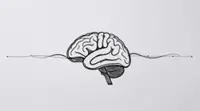Age is a major risk factor for cognitive decline, as are lifestyle and social isolation, suggest the findings of a new study by researchers in China.
More specifically, their work focused on the benefits of pets in preventing certain symptoms of cognitive decline, and in slowing the progression of dementia, particularly in older people living alone.





